-
About
- About Listly
- Community & Support
- Howto
- Chrome Extension
- Bookmarklet
- WordPress Plugin
- Listly Premium
- Privacy
- Terms
- DMCA Copyright
- © 2010-2025 Boomy Labs

 Cameron Forester
Cameron Forester
Listly by Cameron Forester
Listed below in no particular order are a few money-saving tips that when implemented can make a big difference to where and how you spend your cash. I hope they'll prove to be as useful to you in your new-found independence as they were and still are to me.
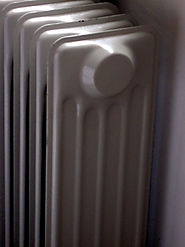
The average annual cost for central heating in the UK is £609 (based on 13,500 kWh of usage), which is a lot of money to spend if you don’t need to. Before putting the heating on there a few things you can do to keep yourself warm; layering up in your warmest clothes, using a hot water bottle and wrapping yourself up in blankets are all good ideas. It’s also worth investing in a few draft extractors as these will help to keep the cold air out of your home. You can also try having a hot shower and drinking warm milk or herbal tea before bed as this will not only keep you warm, but help to facilitate a good night’s sleep. Keep your heating switched off as much as possible and you’ll save yourself a lot of cash that could be better spent elsewhere.
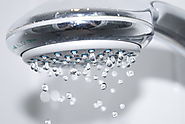
After a stressful day there’s nothing more relaxing than a good old bubble bath, but indulge in too many and they could end up costing you a lot of money. The cost for running a bath in the UK is typically between 30p-90p (depending on the efficiency of your boiler), while having a shower costs only 20p-30p. It may not seem like a huge difference, but over the course of a year you could waste up to £250 on heating water for the bath, so it’s well worth saving the bubbles for when they’re most needed.
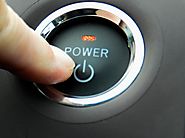
Research has shown that leaving electrical appliances on standby rather than switching them off at the main power button or plug socket actually uses almost the same amount of energy as when they’re in use. Electricity is very expensive, so it’s a good idea to be aware of how much you’re using to avoid suffering a shock when your bills arrive. To avoid wasting your much needed cash be sure to switch off your appliances when not in use.
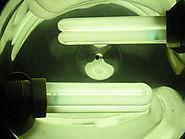
They may not be the brightest or most attractive to look at, but energy-saving lightbulbs are an excellent choice if you care about the environment and want to save money. As well as costing far less to use than their traditional counterpart, energy-saving lightbulbs tend to last a really long time (between five and eight years!) and over the course of their life typically save around 2000 times their own weight in carbon dioxide emissions.

When the going gets tough there’s nothing us Brits find more comforting than a nice cup of tea. Something to bear in mind when you’re on a tight budget though, is how easy it is to waste money on boiling water that you don’t need. One tip for saving money on your bill is to only fill your kettle with the amount of water that you need. The less time it takes for the kettle to boil the less you will have to pay for your tea and coffee habit. In fact, gas is generally cheaper than electricity so choosing a stove-top kettle over an electric one will help to save you even more.
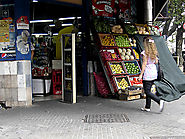
It may be tempting to buy your meat and veg from the supermarket, but buying from your local greengrocer and butcher will save you quite a bit of cash as they tend to offer their produce at much cheaper rates. Choosing to buy locally will not only benefit you by saving you money, but will also benefit your community by helping to keep local businesses alive.
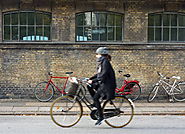
If you have to travel a long way to work or to see family and friends then of course it makes sense to jump on a bus or train. However, using public transport when you could just as easily walk or cycle is a sure way to throw your money down the drain. Travelling by foot or by bike will not only save you a fair bit of money over the course of the year, but the exercise will help to keep you in good shape.
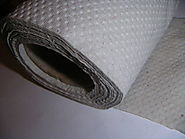
This may seem counter-intuitive, but if you’re short on money then you may well be tempted to buy the cheapest pack of toilet roll you can find, and this is completely understandable. After all, who wants to waste their much needed cash on something used mainly to clean their bum? However, while it may seem to make more sense to spend as little as possible, cheap toilet roll is often very poor quality and can cost you way more in the long run. Opt for the slightly more expensive stuff and you’ll find that it’s not only softer, thicker and nicer to use, but that it lasts far longer and will need replacing much less frequently. This rule can actually be applied to most things, so it’s always a good idea to consider whether the cheapest option is also the best quality. If not then you may end up forking out much more on replacement products than if you just paid a little extra in the first place.
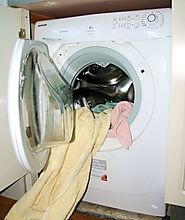
While the washing machine is undoubtedly one of the best inventions of the twentieth century, it is also one of the most expensive household appliances to run and should therefore only be used only when necessary. One load of washing per week should be enough to keep you in clean clothes; any more than that is probably unnecessary and will only add unwanted digits to your energy bill. You can save even more and reduce your energy consumption by washing at lower temperatures.
If you also have a tumble dryer then it’s best to avoid using it all together as drying your clothes will cost you even more than washing them!
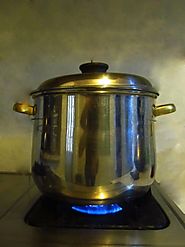
Heating liquids like soup and pasta sauce on the stove can sometimes seem to take forever, and the longer it takes the more you will have to pay for the energy used. To speed things up and save money in the process be sure to always cover the pan with a lid. The less heat that is able to escape from the pan the faster the liquid will reach the desired temperature.
